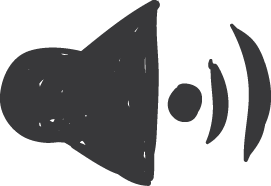Think of the answers to these questions:

In this topic, you will answer those questions through the use of quantifiers.
|
Did you know the use of these words? a few a little plenty of enough |
By the end of this topic, you will:
Be able to use quantifiers like a few, a little, plenty of, enough, in affirmative and negative sentences, and questions, so that you can express quantities in daily, leisure, sport and cultural activities
Rules of quantifiers
Click on Next to see the information.
We use much and little with uncountable nouns:
We use many and few with plural nouns:
We use plenty of with both uncountable and countable nouns. Plenty of = more than enough
Little and few (without “a”) are negative ideas (=not much / not many).
A little and a few have a more positive meaning, they both mean some, or a small amount or number.
Enough indicates that the quantity or size of something is suitable or appropriate.
Not enough means that there is a problem with the quantity or size of something. The quantity is insufficient.
Activity 1
One use you can give to quantifiers is to talk about world cities and their kind of life.
Read the whole text “Dubai: The growth of a giant” and click on the Next button. Then, in the following sentences, write if they are true or false according to the information. After this, you will identify the appropriate use of quantifiers.
Decide if the following statements are true or false by choosing the appropriate option. You have only one attempt to answer the questions. At the end of the exercise, you can know your score.
Activity 2
Listen to the conversation by clicking here:

Listen to the speaker’s monologue and drag the different elements to the appropriate space according to the audio.
Activity 3
Another use you can give to quantifiers is to write about world cities, their economic and cultural development. You are going to write about the progress of your country using quantifiers.
Investigate the cultural and economic growth of your country. Write ten sentences, five affirmative and five negative ones, using the words in the box.
|
a few a little plenty of enough |
Don’t be afraid to be creative and punctuate carefully. Pay special attention to the use of quantifiers and verb tenses.
Please, before you write your text, read the example and make sure it has the characteristics contained in the checklist to evaluate it yourself.
As you have practised in this unit, quantifiers can be used in many ways. You are going to imagine you are going to throw a party. Choose from the following options:

Retrieved on May 18, 2017 from
Think about all the food and the requirements you need for the party. Make a recording where you use quantifiers to describe everything necessary for the party you chose.
Record a two-three minute monologue with the description. Pay attention to the use of quantifiers and correct tenses.
Make sure it has the characteristics contained in the rubrics. Listen to the example. Once you are ready, you will record your account.
With a little effort this party will be great, my mom will have plenty of fun and enough memories for years to come.
Think of an English-speaking country you would like to visit.
Do some research about that country in terms of economy, culture, projects and plans for the people.
Prepare a monologue where you describe:
Please, before you send your description, make sure it has the characteristics contained in the rubic to evaluate it yourself.
Quantifiers are very important to express quantity and, as you could see in this unit, they are widespread in the English Language. In this activity, you are going to make use of quantifiers to complete logical sentences.
Complete the following sentences using a quantifier from this topic.
Quantifiers are very important to express quantity and, as you could see in this unit, they are very common in the English Language. In this activity, you are going to choose specific quantifiers to complete a sentence with the correct word from the options.
Read these sentences and choose a quantifier to complete them.
Hewings, Martin. (2005). Advanced Grammar in Use. Cambridge: CUP (2nd ed)
Murphy, R. (2012). English Grammar in Use. Intermediate. Cambridge: CUP [4th ed]
BBC Learning English. (2006-2016). How to… Be vague. Retrieved 23/04/17 from
https://www.bbc.co.uk/worldservice/learningenglish/radio/specials/1210_how_to_converse/page17.shtml
BBC World Service. (2011). Learning English: Fewer or less? A little or a few? Retrieved 23/04/17 from
https://www.bbc.co.uk/worldservice/learningenglish/grammar/learnit/learnitv260.shtml